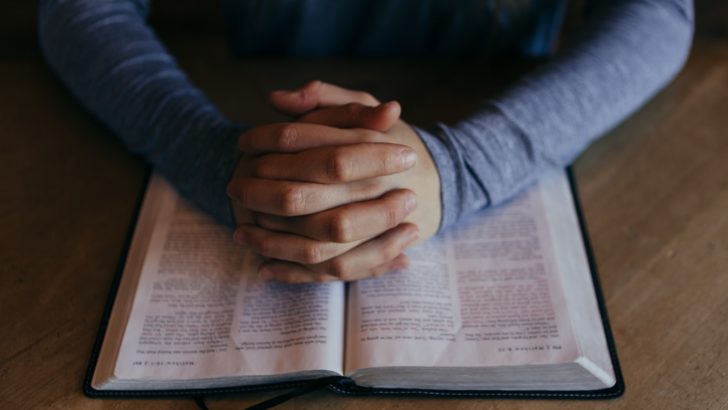In virtually all of his novels, Milan Kundera, manifests a strong impatience with every kind of ideology, hype, or fad that makes for group-think or crowd-hysteria. He is suspicious of slogans, demonstrations, and marches of all kinds, no matter the cause. He calls all these the great march and, to his mind, they invariably lead to violence, all of them. Kundera likes artists because they tend to steer clear of causes, wanting to paint or write rather than march.
There are causes worth fighting for and there are injustices and wounds in our world that demand our involvement beyond our wanting rather to paint or write. Still Kundera’s severe judgment on marches and demonstrations of all kinds, the great march, is fair warning. Why?
Because in our more reflective moments we know how hard it is not to get caught up in ideology, hype, fad, group-think, and crowd-hysteria in a way that leaves us mindless. It’s hard to know what we really think and believe, as opposed to what the cultural circles we move within prescribe for us. It’s hard not to be caught up in the fashion of the moment.
Ideology
But it’s even harder for us to ground ourselves in something deeper; to root ourselves in a perspective outside what Thomas Hardy once called the “madding” crowd. How can we ground ourselves in a depth that immunises us from ideology, fad, hype, fashion, and the subtle group-hysterias that plague every culture?
In Luke’s Gospel, the disciples sense that Jesus is drawing his wisdom, calm, strength, and power from somewhere beyond himself, that he is grounding himself in something beyond both the enticements and threats of the present moment. Their hunch is that he is finding this depth in prayer.
They too want to connect to this depth and power and they have come to realise that prayer is the route, the only route, to take them there. And so they ask Jesus to teach them how to pray. What did he teach them? How do we pray in such a way so as to ground ourselves in something truly beyond our own individual and collective narcissism?
Sometimes even our sincere prayer together is nothing more than the deepening of our group narcissism and a deeper enslavement to the maddening crowd”
Metaphorically, this is described for us in the passage in Scripture which records the martyrdom of St Stephen. This is the scene:
A crowd of very sincere, though misguided, persons, driven by religious fervour, but caught up in some group-hysteria, gather to stone Stephen to death. Here’s how scripture describes it: “They were infuriated when they heard this and ground their teeth at him. But Stephen, filled with the Holy Spirit, gazed into heaven and saw the glory of God, and Jesus standing at God’s right hand. ‘Look! I can see the heaven thrown open,’ he said, ‘and the Son of man standing at the right hand of God.’ All the members of the council shouted out and stopped their ears with their hands; then they made a concerted rush at him, thrust him out of the city and stoned him.” (Acts 7, 54-58)
Stephen’s death was real, but the description of his dying is replete with metaphors that tell us what it means to pray and what it means to not pray.
What does it mean not to pray? The crowd, notwithstanding their religious fervour and sincerity, do not pray. The description here says it all: Their gaze is on in Stephen, at whom they are looking with misunderstanding and hatred.
Moreover, his message of love is at that moment an inconvenient truth so they are stopping their ears so as not to hear, and they are in the grip of group-hysteria. They are not seeing the heavens laid open, but rather a very earthly person whom they hate; and they are not in the flow of the Holy Spirit but in the grip of hysteria. That is why their gaze never rises above their bitter glare at Stephen. They are solely in the moment, in the now, seeing only what is below the heavens, and that is non-prayer.
No matter how sincere we are religiously, what has just been described is not prayer. Indeed sometimes even our sincere prayer together is nothing more than the deepening of our group narcissism and a deeper enslavement to the maddening crowd. Our eyes are still on each other and not on God.
It’s hard to know what we really think and believe, as opposed to what the cultural circles we move within prescribe for us”
Stephen, on the other hand, is praying. He is described as having his eyes turned upward (a metaphor, not a pictorial description) and he is gazing into heaven and seeing the heavens laid open.
His gaze is beyond the crowd, beyond the moment, beyond human divisions, beyond hatred, beyond even the fear of his own death. He is gazing into something beyond the crowd and the present moment. This, and only this, is prayer.
I share Kundera’s fear about the great march and how easily and blindly I, and most everyone else, can fall into step. His hunch is that art can help ground us outside the maddening crowd.
I would add that prayer is even more helpful.


 Fr Ronald Rolheiser
Fr Ronald Rolheiser
